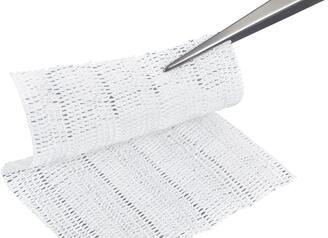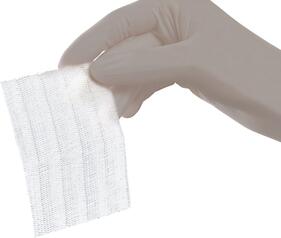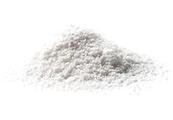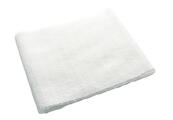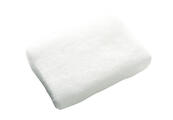OKCEL® H-D
Heavy duty textile form of oxidized cellulose
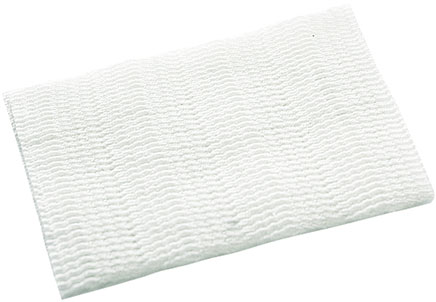

OKCEL® H-D is a higher density knitted textile version of the absorbable haemostatic material with greater thickness, improved endurance and better efficiency. It is used to control haemostasis in higher volume capillary, venous or arteriolar bleeding.
Handling parameters:
- can be easily cut without fraying
- can be rolled
- does not stick to instruments
- easy (re)positioning at the bleeding site
- no memory effect
Available product sizes:
| Item | Format size |
Packaging [pcs / sales unit] | |
|---|---|---|---|
| OKCEL H-D 202 | 2.5 x 2.5 cm | 15 | |
| OKCEL H-D 209 | 2.5 x 9 cm | 15 | |
| OKCEL H-D 575 | 5 x 7.5 cm | 10 | |
| OKCEL H-D 710 | 7 x 10 cm | 10 | |
| OKCEL H-D 1420 | 14 x 20 cm | 10 |
Photos:
Size chart of OKCEL® H-D
| Format size | Packaging [pcs / sales unit] | |
|---|---|---|
| OKCEL H-D 202 | 2.5 x 2.5 cm | 15 |
| OKCEL H-D 209 | 2.5 x 9 cm | 15 |
| OKCEL H-D 575 | 5 x 7.5 cm | 10 |
| OKCEL H-D 710 | 7 x 10 cm | 10 |
| OKCEL H-D 1420 | 14 x 20 cm | 10 |
| OKCEL H-D 1523 | 15 x 23 cm | 10 |
Other products
OKCEL® Ca-L
powder calcium salt of oxidized cellulose
OKCEL® Ca-L is a semi-finished product that is white to light yellow in colour. It can be used as a powder or sprayed on to stop minor bleeding, particularly in first aid situations, and to treat small cuts, abrasions, and scrapes. It can be used as a component for haemostatic plasters for the treatment of small wounds. It is available in a bulk form only.
OKCEL® H-T
Original textile form of oxidized cellulose
OKCEL® H-T is a knitted textile version of the absorbable haemostatic material with regular density, ranging in colour from white to yellowish. It is used to control capillary, minor venous and minor arteriolar diffuse bleeding.
OKCEL® F
Fibrillar cotton wool form of oxidized cellulose
OKCEL® F is a non-woven multi-layered and lightweight version of the absorbable haemostatic material with improved flexibility and extreme absorbency. Any amount of OKCEL® F can be easily separated in such a way that the fibres continue to hold together without uncontrolled release into the operative site. It is used to achieve haemostasis over large areas, at irregularly shaped bleeding sites or in areas that are difficult to access.


